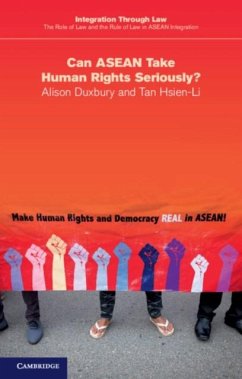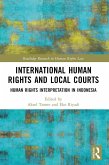The adoption of the ASEAN Charter in 2007 represented a watershed moment in the organisation's history - for the first time the member states explicitly included principles of human rights and democracy in a binding regional agreement. Since then, developments in the region have included the creation of the ASEAN Intergovernmental Commission on Human Rights in 2009 and the adoption of the ASEAN Human Rights Declaration in 2012. Despite these advances, many commentators ask whether ASEAN can take human rights seriously. The authors explore this question by comprehensively examining the new ASEAN human rights mechanisms in the context of existing national and international human rights institutions. This book places these regional mechanisms and commitments to human rights within the framework of the political and legal development of ASEAN and its member states and considers the way in which ASEAN could strengthen its new institutions to better promote and protect human rights.
Dieser Download kann aus rechtlichen Gründen nur mit Rechnungsadresse in A, B, BG, CY, CZ, D, DK, EW, E, FIN, F, GR, HR, H, IRL, I, LT, L, LR, M, NL, PL, P, R, S, SLO, SK ausgeliefert werden.









